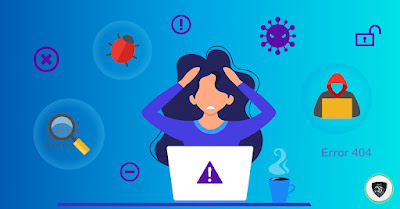When using a VPN, malicious code is not always detected. That way, users won't have to worry about their smart gadgets getting in the way. Though anti-malicious software has the power to show the users about malicious downloading a user downloads and a VPN gives them an advantage by hiding their identity when they wish to be.
For instance, if a user obtains corrupted torrent stuff then VPN makes sure that the user's ISP and file owner remain blind from the user l's downloading activities.
VPN also ensures Cross-Device Protection. Furthermore, VPN has the power to be used by various platforms like computers, tablets, gaming consoles, Firesticks, mobile phones, Macs, and Smart modern TVs. VPN makes sure that all activities of a user should be encrypted irrespective of the user's device.
Anti-malware programs allow users to run them on various gadgets. And other promoted platforms are confined.
What Is Not Protected by VPN?
You can be protected from harmful online files with an antivirus, but a VPN hides your true identity when you need it the most.
You can use a VPN to hide your IP address; your ISP and the copyright owner can't see what you're downloading while you're downloading copyrighted torrent files, for example.
Data That You Gave Consent To Hand Over
Suppose the user has a strong enough security password locker, and you email a buddy the strong password.
When a criminal or fraudster gains access to that communication, all of users credentials are at their fingertips.
When it comes to certain situations, no matter how good a VPN service is, there is no chance it can safeguard you. Users' password is exclusively for you.
A Website with Security Flaws
Site administrators must adhere to best practices in order to maintain the data a user shares with them.
A User could still have his private details stolen or misused if the webpage does not store them properly.
However, the user's VPN has no influence over the information that is saved online, even if he uses one to mask his online behavior.
Infected Links & Torrent Downloads
If you want to be warned when you're going to browse a harmful website, make sure your VPN provider includes that function in their service.
Torrents that have been infected with games, clips, songs, downloading & software may only be downloaded to user gadgets using Torrent or BitTorrent clients.
VPNs are confined to identifying harmful pages and cannot scan files obtained through torrent platforms, which means that all these torrents can contain infections and other sorts of spyware.
We should know The Pirate Bay, for example, may come with a disclaimer that it is harmful since it hosts torrent links; whereas many documents on this site are free of infection, some may be loaded with viruses.
So now it's just a matter of deciding whether or not to go on. Viruses can be detected after the torrent-based stuff is complete as long as security is present.
How VPN Protects From Malicious Spyware
Virtual private networks can prevent a wide variety of ransomware from infecting your computer by alerting you to potentially harmful internet sites before you access them.
The following are examples of malware:
- Tools for breaking into computer systems
- Backdoors
- Contextual Redirections in Javascript That Are Harmful
- Phishing Scams Defacement SEO Spam
Direct VPN Encryption on Router
VPN encryption can be installed directly on a router by some VPN providers, ensuring an encrypted connection for all devices connected to the router.
Can Prevent Public WiFi Snoopers
When you're in your favorite cafe or restaurant, why not use the free wifi?
Spies and stalkers may be able to observe what you're doing while you're linked to a hotspot without any encryption.
Luckily, using a VPN while connected to a hotspot protects your online activities from prying eyes by putting an extra layer of encryption between you and the outside world.

